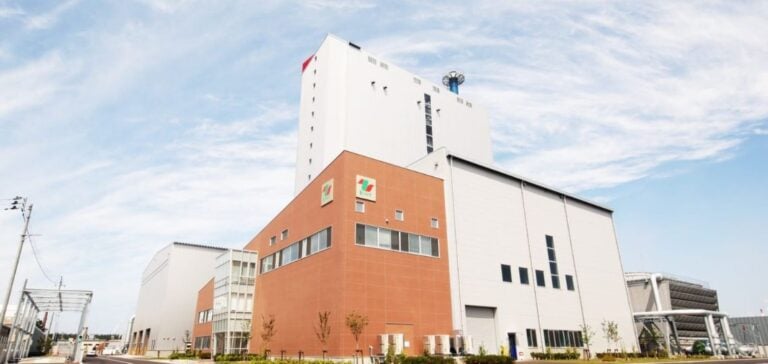The Akita biomass power plant, owned by United Renewable Energy Co, Ltd, a subsidiary of RENOVA, Inc, begins supplying electricity to the Tohoku region via NTT Anode Energy Corporation. This initiative marks a significant step forward in the integration of renewable energy sources in the Tohoku region. Japan, with the aim of achieving carbon neutrality by 2030. NTT Docomo, one of Japan’s leading telecommunications companies, now uses this renewable energy at several of its facilities, including the NTT Docomo Akita building. This is the first time that NTT Docomo has adopted renewable energy from a biomass production facility.
A Local Production and Consumption Model
Since commencing operations in July 2016, the Akita biomass power plant has been selling electricity to transmission and general distribution operators through the Feed-in Tariff (FIT) system for renewable energy. In August 2023, the plant was certified by the Minister of Economy, Trade and Industry and switched to selling electricity via long-term fixed-price contracts with retail energy suppliers. A notable aspect of this power plant is the efficient use of local Akita materials that would otherwise have gone unused. Around 70% of the fuel used comes from these local materials, encouraging the production of local energy for local consumption and supporting the promotion of local forestry.
Perspectives and Challenges of the Energy Transition
The mission of RENOVA, Inc. is to create green, sustainable energy systems for a better world. The company develops and operates renewable energy power plants while developing new green activities. Their commitment is to provide a variety of solutions to meet the diverse needs of customers and contribute to the realization of a carbon-neutral society. However, the energy transition presents significant challenges, particularly in terms of high initial costs and the need for a robust infrastructure to support the integration of these renewable energy sources. Government support and economic incentives play a crucial role in facilitating this transition.
Economic and environmental benefits
The Akita biomass power plant project is not only a model of energy innovation, but also a catalyst for local economic development. By using local resources, it helps to reduce waste and promote local forestry, creating jobs and stimulating the regional economy. What’s more, reducing carbon emissions through the use of renewable energies helps combat climate change, offering a more sustainable future for generations to come. The launch of the Akita biomass power plant represents a step towards the integration of renewable energies in Japan. By efficiently harnessing local resources and adopting sustainable practices, this initiative paves the way for a carbon-neutral society, while stimulating the local economy and offering innovative energy solutions.






















